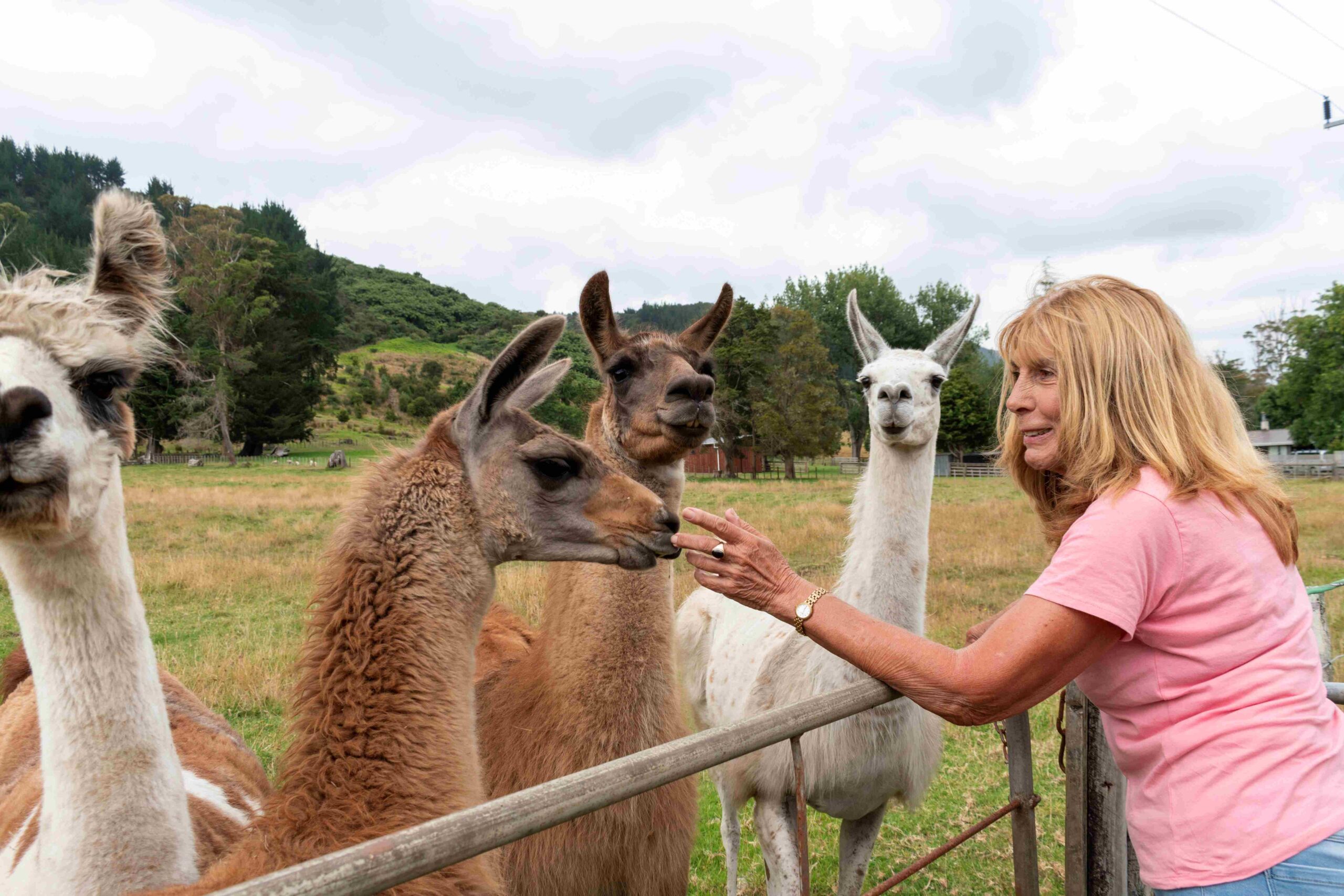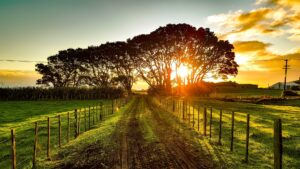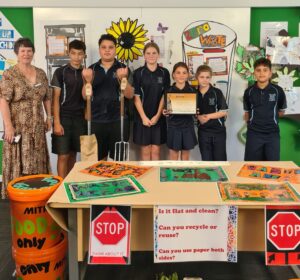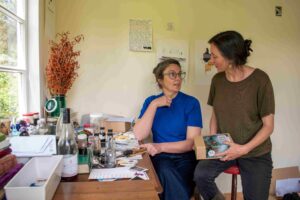In a small paddock nestled among the hills in Kauaeranga Valley, Lorenza Devcich is feeding her four llamas.
The doe-eyed creatures are eager to come close, and Lorenza chats away to them as we talk.
Stella, Fern, Libby and Abby are part of Lorenza’s unique menagerie at Devcich Farmstay. They are also the stars of Lorenza’s llama treks – a 90-minute walk to a private swimming hole, accompanied by the graceful mammals on leads.
“We follow this tramline up and along the river up to the end of the property, which gives you lovely views looking up to those hills close up,” Lorenza says.
“I’ve been doing it on and off for the guests and it was such a hit, I have decided to open it up a bit, by appointment only.”
There’s a bit of a scuffle as we talk, while the llamas jockey for position at our buckets. They’re real characters, Lorenza says.
“Stella’s got a personality of her own and if she decides that she doesn’t want to walk, she’ll just stop and put the brakes on. And she’s even sat down,” she says.
“Usually when she sits, I’ve got to just leave her. There’s no way, I’ve sat on her and all sorts and she won’t get up. So we just leave her behind and then she catches up when she’s had her little protest.
“But she loves it when we go, I usually walk them up to the swimming hole and she’ll get in the water.”
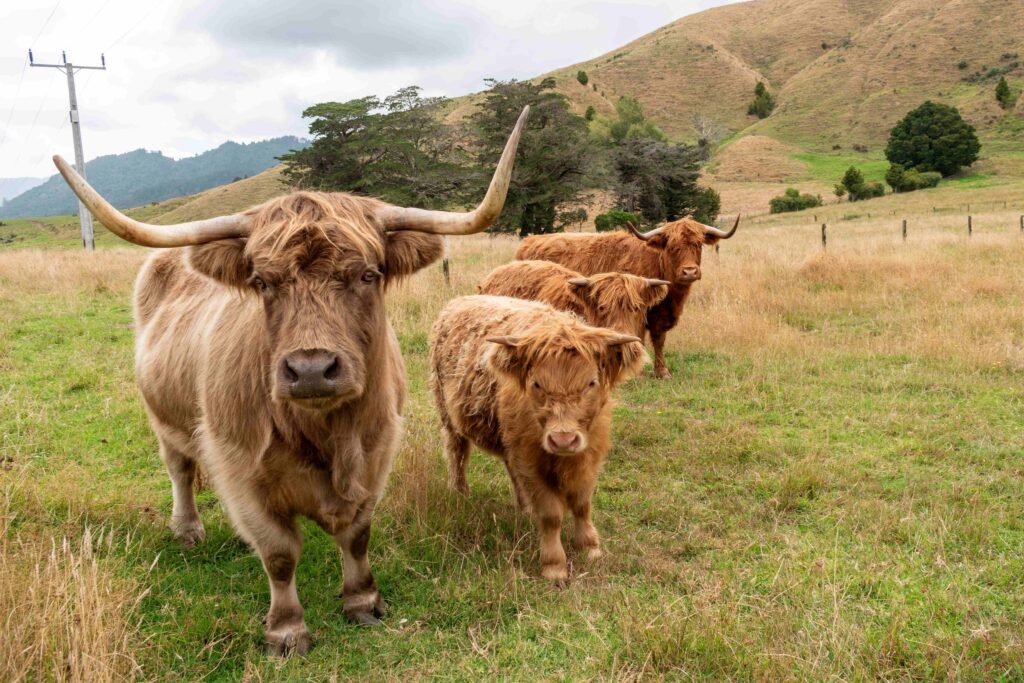
Along with the llamas, Lorenza has a herd of Scottish Highland cows, some Damara sheep, and a whole flock of interesting birds – peacocks, partridges, Lady Amherst hens, guinea fowl, golden pheasants, two emus, and a variety of interesting hen breeds.
“I’ve always liked antiques and character stuff rather than modern,” she says.
“And with animals and birds, I just like something that’s a little bit different, you know, that you don’t see on a farm every day.”
The whole farm is filled with things you don’t see every day. A category one historical property, it was established by Lorenza’s grandfather Simun and his two brothers when they immigrated from Dalmatia, Croatia, in the early 1900s. Simun and his family ran a number of enterprises on the property. Lorenza returned to Thames in 2005 to help her father, and has been working hard ever since on restoring and repairing the original buildings.
“When I first took over, you couldn’t walk around this island in the middle,” she says of the toolshed.
“It was full of rubbish. I had a big skip out there and all the bent pipe and the rusty nails and stuff that couldn’t be used or wasn’t antique – out it went. I had three piles: rubbish, antiques, stuff I could use.
“I think I’ve improved it, if anything. Hopefully keep the history going for a bit longer.”
There’s a woolshed, kauri mill, toolshed, blacksmithery, and winery on the premises, alongside the three-bedroom homestead and a one-bedroom cottage. Lorenza has memories of the mill running as late as the 80s, and she worked in the winery as a child.
“My father, Ivan, [was] a winemaker. This particular shed was built in 1931,” she says.
“My job was filling the bottles or cleaning them. And it was dreadful stuff, even as a teenager. I couldn’t stand it.”
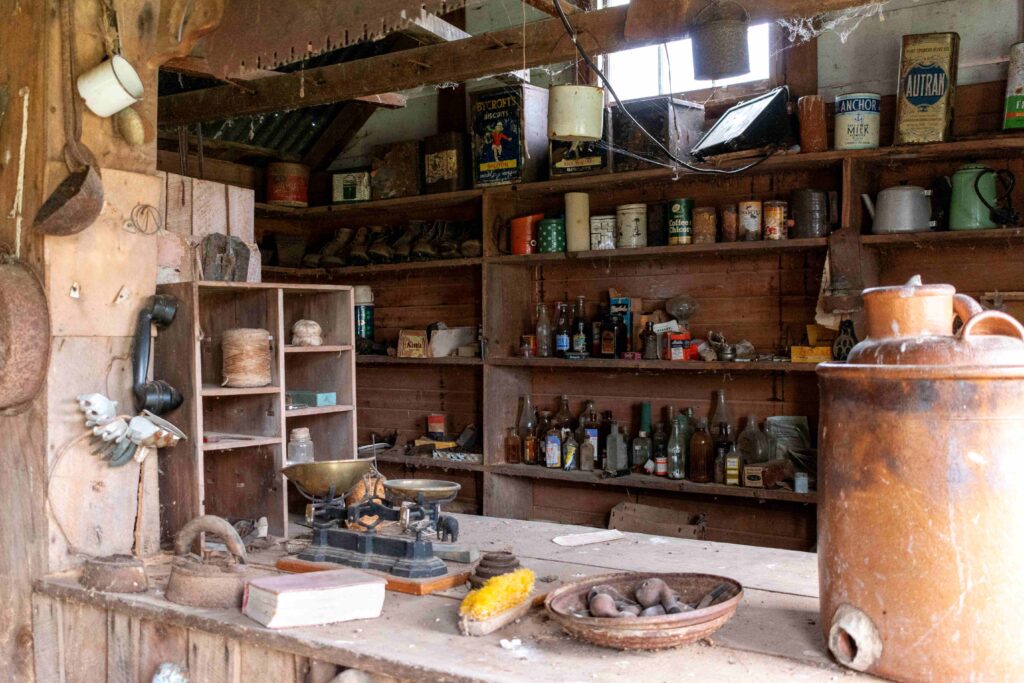
Also onsite is a trading post, looking just as it would have 100 years ago.
“My grandfather would trade with the gum diggers and the loggers in the camps up by the Pinnacles,” she says as we poke around in the trading post among ancient tools and dusty bottles.
“A lot of them didn’t have any money so he’d give it to them on credit, and then he’d buy the gum back.”
We emerge into the sunshine once more to watch Lorenza’s birds stroll around the lawns, and the llamas crowding around the fence across the way.
Much of the charm of the place, it seems, comes from Lorenza herself – full of stories of her family and history that brings the place to life.
“I came back to Thames in 2005 when Dad’s health started failing. When I got back home I thought, this isn’t such a bad place to be. I felt at peace actually,” she says.
“It’s a lot of work and [the animals] keep me really busy [but] I’m just about to the stage now that I’m happy with it.
“I’ve done my bit with it, saving most of the buildings, working harder than I ever have.”

